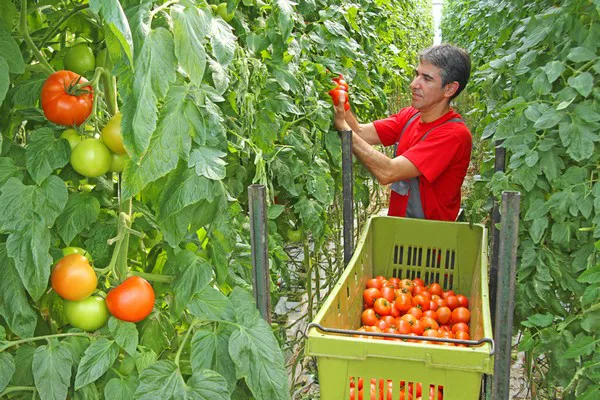Rising concerns among NZ tomato growers have pushed TomtoesNZ to collect data and release draft information on the challenges NZ tomato growers are facing and possible solutions the NZ govt should pursue. The organization is still working to collect more feedback to continuously update this report.
Different growers, different impact
Covid has posed a real threat to food security in New Zealand too. With 82% of the undercover crop growers being medium or large businesses, the organization points out that the increasing cost of supplies to grow tomatoes and low returns are unsustainable and will force many growers out of business. “Bad policy will threaten New Zealand’s food security and force Kiwis to rely on imported produce from countries that don’t have the same integrity Food standards or drivers to send food to us at the bottom of the world,” they said. Indeed, they share that 25% of small to medium growers have stopped growing tomatoes in the last 4 years.
So, the first big challenge for NZ tomato growers is the cost of energy, especially with regards to decarbonization efforts. “The industry has been working to promote energy efficiency and sustainable fuel alternatives but needs help for growers to commit to making the fuel switch. DETA report estimated cost of fully decarbonizing all covered crops would be $220 million.”
 © Branex | Dreamstime© Branex | Dreamstime.com
© Branex | Dreamstime© Branex | Dreamstime.com
Energy pains
According to the organization, only a few growers can afford to convert their operations to sustainable energy. “Pulling out crops and/or not heating are the alternatives which both reduce yield,” they point out. “Fewer NZ grown tomatoes leads to more being imported.” To address this, TomatosNZ believes that growers should generally be supported more when transitioning to decarbonized heating. “On top of that, the industry needs to work with the Ministry for the Environment to increase the threshold or exemptions for undercover crops growers and to simplify the process for applying for the free allocation of ETS. Additionally, tomato growers need protection as imported Australian fresh tomatoes are not subjected to the same carbon tax production costs, which leads to unfair competition. This, together with the transportation of imported tomatoes, represents carbon leakage.”
Increasing energy costs means an increase in the cost of production, which is not being compensated in the price given by supermarkets. “The govt needs to support the industry to convey the real costs involved in food production to increase consumer awareness,” they say.
Labor
And in NZ, too, the shortage of labor supply has affected the horti sector, which has pushed some growers to plant less labor-intensive crops – that is, no tomatoes. “All tomato growing businesses have been operating with 40-60% of their normal employees due to Covid. Many in the industry are having to work excessive hours for business survival, which isn’t sustainable and must be addressed,” they point out. So, TomatoesNZ is committed to promoting the undercover crop sector as a career option for NZ high school students. “Longer term, the horti industry needs to be front and center in a pro-migration policy,” they say. “All migrant workers are important. Taking a long-term approach that offers more visas, for multiple years, would give growers assurance that they will have a workforce when required and that they should plant tomatoes.”
Crop protection
Another threat to the NZ tomato industry is biosecurity. Figures shown by TomatoesNZ illustrate that biosecurity responses have cost tomato growers over $150,000 in levies only over the last five years. “In 2022, no tomato got exported to Australia due to biosecurity incursions,” they point out. But other than preventing export, pest outbreaks directly affect production costs due to lower yields and poor quality crops. “Growers deserve a passionate and proud advocate in the highest of roles. This would put the spotlight on our sector to ensure it is elevated at all tables growers and govt strive to meet the Fit for a Better World objectives. A Minister and govt that understand the growing and associated issues that are championing the sector and giving full support when it comes to govt policy making around the cabinet table.”
if you're a grower of fresh tomatoes in New Zealand and would like to give feedback on any of these points, please email tomatoes@hortnz.co.nz
Source: tomatoesnz.co.nz
